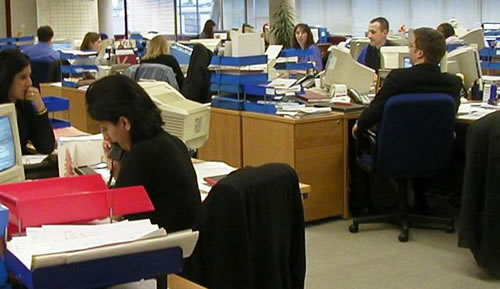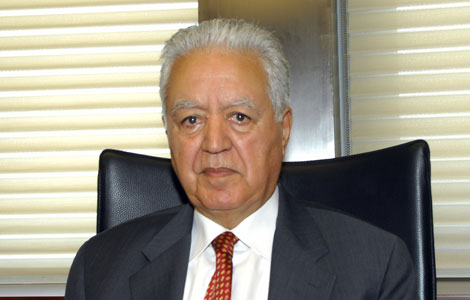Criticism From Kurds Regarding Unilateral Declaration of Democratic Autonomy
Following the declaration of “democratic autonomy” by the Democratic Society Congress (DTK) in Turkey’s Kurdish-dominated provinces of the East and Southeast, voices of dissent have started to rise among Kurds regarding what a unilateral declaration of autonomy means.
The first criticism came from Altan Tan and Şerafettin Elçi, who were elected to Parliament as independent deputies supported by the pro-Kurdish Peace and Democracy Party (BDP); they spoke against the announcement of autonomy by the DTK, a BDP-affiliated group. They both said that the timing and manner of the declaration were wrong because the declaration came on the same day that the outlawed Kurdistan Workers’ Party (PKK) killed 13 soldiers in an ambush in Diyarbakır province’s Silvan district. İbrahim Aksoy, a founder of the pro-Kurdish People’s Labor Party (HEP), said that it is not acceptable for him to accept democratic autonomy when the decision was mainly taken by Abdullah Öcalan, the jailed leader of the PKK.
“Öcalan’s lawyer, Aysel Tuğluk, announced democratic autonomy following her last meeting with Öcalan on İmralı. It is not possible for me to accept it as every sensible Kurd would not do so,” he said. He stressed that democratic autonomy is acceptable only by agreements on both sides. In addition, he said that it does not represent Kurds.
According to Aksoy, the BDP through the DTK is trying to find ways of returning to Parliament. The DTK was founded last year after the Constitutional Court decided to shut down the Democratic Society Party (DTP) because of its separatist tendencies. The BDP has been boycotting Parliament in protest of court rulings that barred some of its elected candidates, who are currently in jail, from taking their seats. “They are trying to lay the groundwork to be in the Parliament on Oct. 1,” he said.
Supporting Akosy’s views, Bayram Bozyel, founder of the Rights and Freedoms Party (HAK-PAR), said that the announcement of democratic autonomy has no meaning since it is not binding.
“If we are talking about a situation that will determine the future of Kurds – as in the declaration of autonomy – you can’t do it unilaterally, without having the views of the other Kurdish groups,” he said. He also referred to the fact that the announcement came “inappropriately” on the same day, June 14, when PKK members killed 13 soldiers and wounded seven others in an ambush in Diyarbakır, escalating already high-running tensions.
Fehmi Demir, who is among the founders of the Democracy and Change Party (DDP), said that the announcement meant to “breed chaos.”
“We have a hard time understanding the meaning of the announcement as we talk about making a new constitution,” he said. He also said that autonomy is a “natural demand” for the Kurdish people but that the DTK cannot make the decision itself. “This can be possible only through negotiations between leaders who represent Kurds and Turks, and it should have legal support. There is no legality in the announcement,” he said.
Announcing “democratic autonomy,” Tuğluk, who is also the chairwoman of the DTK, had said that the solution to the Kurdish problem could only be solved if Kurds are recognized as a distinct group but with equal status. The Kurdish deputy also called on the international community to recognize the democratic autonomy that her congress had declared. The Diyarbakır Prosecutor’s Office has already launched an investigation into the announcement of the group.
The DTK, which describes itself as a local organization of Kurds in eastern Turkey made up of intellectuals, representatives from civil society organizations, pro-Kurdish politicians and some members of the BDP, presented the first comprehensive draft of its “Democratic Autonomous Kurdistan Model” at a conference in Diyarbakır in December of last year.
Öcalan, the imprisoned leader of the outlawed PKK, is known to be the mastermind behind the idea of democratic autonomy, a term no one can clearly define. The pro-Kurdish BDP argues that the term refers to strong local government, but the government and other parties claim that it will lead to the use of a separate language and flag, which they argue is out of the question.
Meanwhile, the DTK and BDP are planning to send a delegation to Europe to examine existing forms of autonomy in European countries. Eight commissions under the DTK have been established to examine the issue. The DTK is planning to organize seminars both in the region and in other parts of Turkey to explain what “democratic autonomy” entails. Their main argument in these seminars will be that autonomy does not mean disintegration or separation but empowering local governments to increase the welfare of the local population.
24 July 2011
SOURCE: TODAYS ZAMAN





